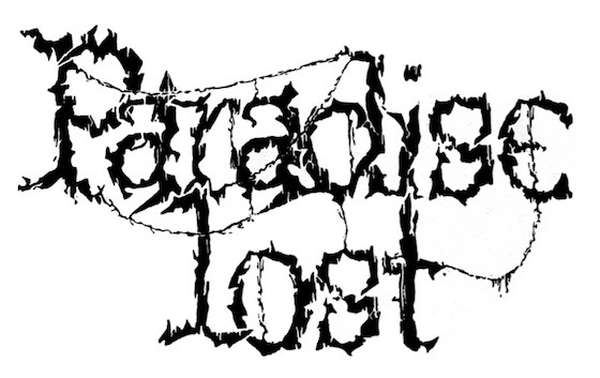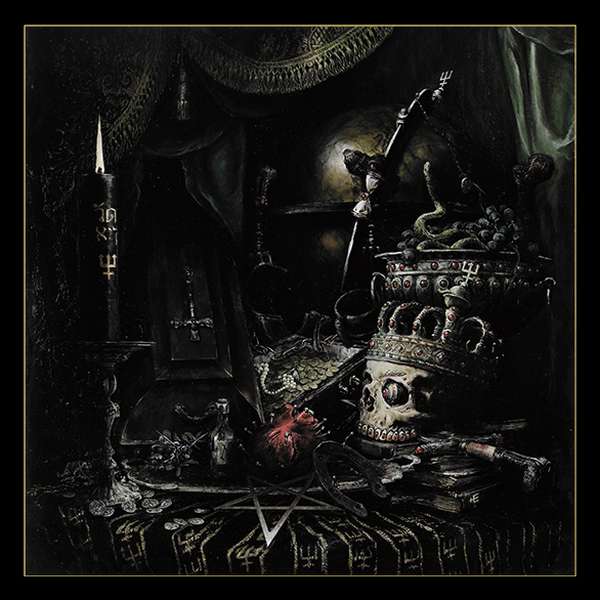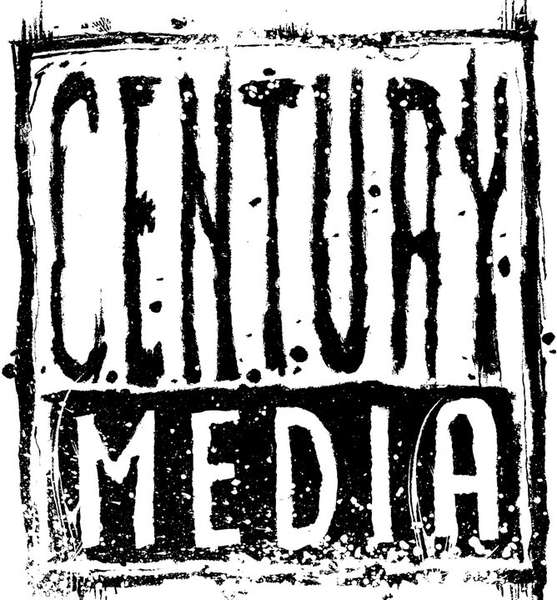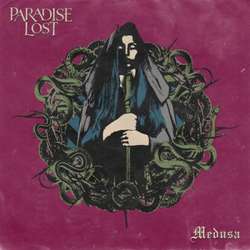The darkest colours of our world are reflected in the glistening surface of Paradise Lost’s music; the shining pain of loss, the radiant horror of a God who has abandoned us or the bitter twist of hopelessness, Paradise Lost know our fears and they shine a light on who we are and what our deepest secrets reveal about us. Obsidian is the British band’s sixteenth full-length, and considering the band started out in the late 80s (their debut Lost Paradise was released in 1990), their sound hasn’t changed a huge amount – and it’s not to their detriment that this is the case. Some bands can evolve their sound and move through genres effortlessly and some bands stay true to their original idea and continue to improve on their execution of that formula. Paradise Lost are one such band and Obsidian is a great example of a band engineering their feelings into musical pathways – ones that they are ultimately known for paving initially – and giving those darkened thoughts life beyond the inner-self.
The voice of Paradise Lost is that of Nick Holmes, who uses both deep and gruff vocals alongside soaring cleans in order to maximise the emotional impact of the songs. Ever since Lost Paradise, the band have tread the path of a death metal/doom hybrid and have long been seen as pioneers of a genre that married the harsh tendencies of death metal with the somewhat funereal presence of the doom genre. Since those early days, Holmes has driven the human aspect of Paradise Lost with emotive performances and Obsidian is no different in its varying emotional range. “Serenity” is realised in harsh, growled vocal lines, the anger apparent in Holmes’ rasp while “Ending Days” fulfils its promise of inevitable disaster with rich, clean vocals that are woven with pain.
“Darker Thoughts” opens the album on slow, deliberate movements that showcase Nick Holmes’ ability to be delicate when needed – as though this is the beginning of a journey and the initial steps are tentative, searching and seeking for the moment when the path becomes clear. That sombreness soon falls away when the songs flames into life and the voice changes into something much more direct, more powerful and more understanding of the world around it. It’s a hard-hitting beginning that is affecting in its message of supplication to death and it transfers this power into “Fall From Grace,” which continues the story of loneliness and gives insight into a unstable mind that is waiting for some respite from the hardship.
Obsidian deals with a great many religious epithets within its lyrics with several mentions of God appearing throughout the album, and much of Paradise Lost’s music overall, and the ecclesiastical overtones are rendered through huge, Gothic structures of sound. “Ghosts” is a dramatic tenet to the power of a deity that may offer some respite from being broken down while “The Devil Embraced” speaks of the other side of the coin – the power of the dark side is distinctly more appealing, after all. The textures of the song move through soaring guitar solos and gorgeous organ that add dimension and lift the song beyond the heavens and towards the spiritual choirs of “Forsaken.”
“Ravenghast” is a gothic monument to death and its slow, processional pace brings images of a towering mansion that is falling to ruin around our narrator and its fitting that it closes the record on such pitch-black imagery. Paradise Lost are striving to find clarity within their own personal darkness and it’s in their striking visual configurations, built from words of honesty and humanity, that they find their strength and a reason to continue. The answers will come.... in time, and time knows no bounds.
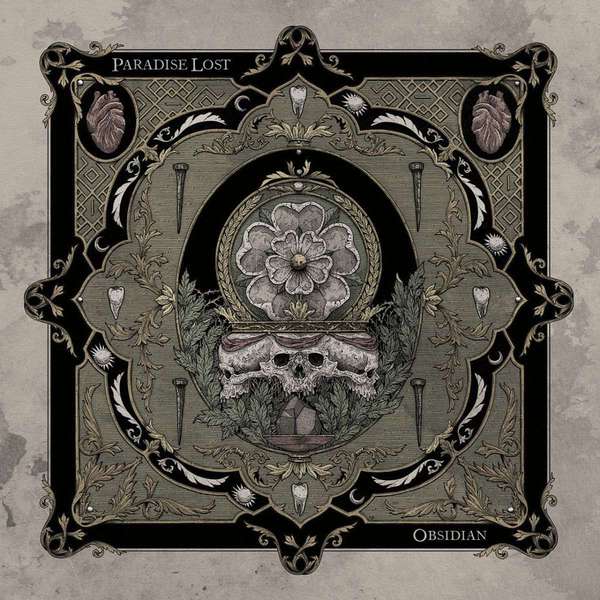
I don't think I'm the first metal critic to acknowledge that they haven't been keeping up with Paradise Lost as well as they should have over the years. I feel like this is a product of both my own evolution of interests, and frankly, Paradise Lost's overwhelming success over the years. They're hard to escape within metal certain circles, and whenever they dropped an album, I got the impression that I can glean the cliff notes from the conversation surrounding it and a couple of video clips, and form a cogent picture in my mind without actually having to do a sit-down listening session with it. This is super wrong, I know, but when it comes to death-doom, I tend to like it very dirty and very evil sounding, two things that I never felt applied to Paradise Lost outside of maybe their first album. Give me an album by Hooded Menace, Spectral Voice, or any band that claims to be inspired by either of them, and I will listen to it until the audio files become corrupted and my hard drive's disc warps. Anything more ambitious then grimy, sewer-water gargling, acid bath rock and I'm likely to take a pass on it. It's a shameful habit, I know. I think something in my brain got broke and soldered back together wrong while listening to Primitive Man's Scorn, because any doom metal I listen to with rough vocals I expect, and kind of need, to be a thorough ear sandpapering. I can say right off the bat that Paradise Lost's latest release Obsidian by no measure a cochlea scouring and yet it scratches a number of powerful itches that the filthiest sounding doom (and sometimes death) metal can't. This is inexplicable only to myself mind you. Everyone else has been on their level for years, and it's about time that I get there too.
Obsidian is the sixteenth album from the chimeric, British, death-doom pioneering, hydra-head Paradise Lost. They've been at this game before it even had a name and many bands like My Dying Bride, Amorphis, and Nightwish owe their careers to them and their ever-evolving style of malevolent new wave, cryptic urban blues, and restless extreme metal. Obsidian opens with the acoustic introduction and orchestral accompaniments of "Dark Thoughts" which carries the ominous emotional weight of a gondola ride down the River Styx, ferrying a soul who hasn't yet realize they've left their body in a gutter somewhere. It would have been acceptable if the song stayed in this lane, but it doesn't, of course it doesn't, an inability to sit still is one of Paradise Lost's many defining traits and saving graces. At around the two-minute mark the guitars and drums thunder into the mix and vocalist Nick Holmes switches from a gothic croon to a fierce death-growl, taking the listener by the hand and flinging them forward into the abyss and an uncertain fate. The deliciously maudlin "Fall From Grace" continues in the same vein offering a phenomenally catchy and elegant approach to dreary melo-death extravagance, reminiscent to the methodology employed on 2017's Medusa, but with its anthemic potential fully realized.
Speaking of anthems, if you still pine for the strangely sexy goth revival of their mid-00s output than Paradise Lost has yet to forget you or your strange explicit fantasies. "Ghost" leans more into the danceable dirge territory of Symbol of Life while "Ending Days" gives into its yearning passion for death and thinly produced guitars in a way that might even make Sisters of Mercy a little uncomfortable. The most entertaining contrast on Obsidian has to be between "The Devil Embraced" and "Ravenghast" because they both represent so many complementary elements of Paradise Lost's current sound. The former has a meandering darkly romantic structure, which wonders in the shadow of some massive sun-blotting hooks while dogged by ferocious death vocals, and the latter is written like a straightforward, pulp-horror obsessed, death metal number, complete with knife-edge guitar slides and churning, muscle-bruising grooves, cut through with lonesome clean singing sections that sound like their attempting to raise the dead with the tears they elicit. Emotionally and stylistically Obsidian a rollercoaster that will leave you feeling conflicted, dejected, a surprisingly at peace with the world. I'm very glad that I picked this album up because it forced me to revisit Paradise Lost's back catalog and appreciate how they've grown over the years, forced me to recognize the exceptional place they inhabit in the current landscape of extreme musicianship. If you can move someone even once in your life with your art, that's an accomplishment and you should be recognized for it. But if you can do it for thirty-two years like Paradise Lost, praise and adulation from a music critic are mere trinkets, for at that point you have become legend.
See also
Mick is always writing about something he's heard. Possibly even something you'd like. You can read his stuff over at I Thought I Heard a Sound Blog.

